Ferreira Gullar
출생 : 1930-09-10, São Luís, Maranhão, Brazil
사망 : 2016-12-04

Himself
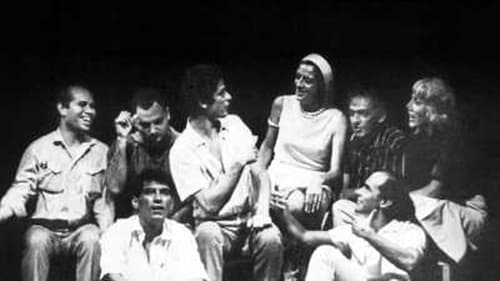
Himself (Archive Footage)
Follows the story of Opinião, a theatre group created in 1964 during the early Brazilian dictatorship period to oppose the government through artistic performances. Considered the first left-wing response to the dictatorship, the group gathered now famous Brazilian artists such as Nara Leão, Maria Bethânia, João do Vale and Millôr Fernandes.

Ferreira Gullar

himself

Documentary on the view, testimonies and times of Darcy Ribeiro, since military dictatorship.

Self
Darcy Ribeiro was a renowned anthropologist, politician and writer. In this documentary, Maria Maia seeks to expose a bit of his personality with testimonials from friends, collaborators and speeches by Darcy himself.

Mixed with fiction and documentary, the film relives the interviews conducted by the writer Clarice Lispector published in the magazines "Manchete" and "Fatos and Fotos" in the 1970s.

Himself
An affective approach to the relationship between Mário Pedrosa, one of the greatest art critics of the 20th century, and some of the most important Brazilian artists takes the viewer on a journey through Brazilian art from the 1950s.

Self

The world post-World War II and its transformations; the utopias that were created and the barbarity that have marked it. The dismantling of the dreaming generation of 1968 and the creation of new prospects in a globalized world.

Self
A documentary made to coincide with Niemeyer's 100th birthday. The renowned architect talks about his long life, his inspirations, and his aspirations towards a just Brazil, and the ways he tried to help that along in his spectacular and beautiful buildings.

Self
To celebrate the life and the work of a multifaceted creator – playwright, poet, partner of the most important names of Brazilian pop music and, above all, an enlightened character of the Brazilian cultural history - director Miguel Faria Jr. gathered an incomparable cast of partners, singers, friends and rare images from the archives recalling Vinícius’ genial simplicity, with the spontaneity, the humor, and the freedom of a person chatting over a bar table, exactly how the eternal Vinícius would enjoy.

Self
Latest images of the artist still alive, an unprecedented composition, testimonies of friends, family and icons of Brazilian culture.
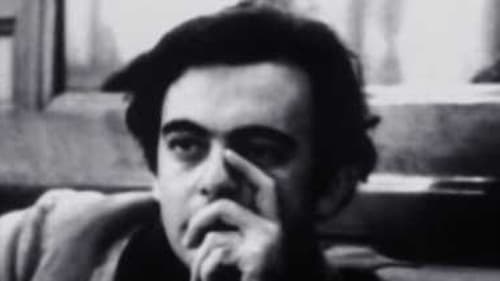
Documentary about Brazilian filmmaker Glauber Rocha, one of the most important names in the Cinema Novo, with interviews with some of his friends and colleagues.

Screenplay
The 20 episode miniseries edited into a 141 minute TV film. The beautiful Flor marries Vadinho and soon finds out he's spending all their money on gambles and has mistresses all over the city. Vadinho suddenly dies while partying during Carnival, and Flor, left helpless and full of debts, ends up marrying Teodoro, who's the exact opposite of her late husband.

Himself
Chronicles the life of military lieutenant, later communist militant and Brazilian politician Luiz Carlos Prestes.

Writer
Adaptation of the series shown in 1992. A sequence of crimes in the same style intrigue: a man walks with a woman on the beach; she dresses as a bride and is brutally strangled in the middle of the act of love. To prove the authorship of the crimes is the great challenge of detective France. Written by: Dias Gomes, Ferreira Gullar and Marcílio Moraes.
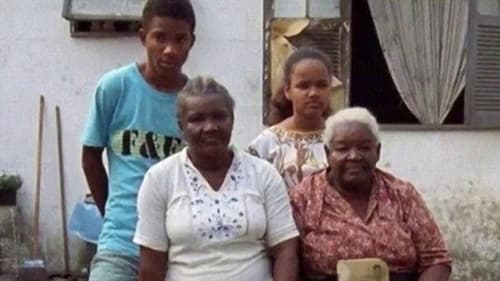
Narrator
A panorama of the Brazilian black experience, starting with the figure of the semi-illiterate popular artist and employee of a salt mine Gabriel Joaquim dos Santos.

Writer
ABC of a Strike captures the 1979 metal workers strikes outside of São Paulo. The footage sat untouched until after the death of highly-regarded director Leon Hirszman in 1987, by which time the material had a new relevance. The gripping film captures the negotiations between the labor unions and the factory bosses and shows the birth of the region’s Worker’s Party, as well as the emergence of its charismatic leader, Luiz Inácio Lula da Silva. Rising from extreme poverty, Lula gained national prominence as a union activist during the late 70s and early 80s. After being jailed during his time as a union leader, he eventually becomes Brazil’s president from 2003 to 2010.

Narration (voice)
ABC of a Strike captures the 1979 metal workers strikes outside of São Paulo. The footage sat untouched until after the death of highly-regarded director Leon Hirszman in 1987, by which time the material had a new relevance. The gripping film captures the negotiations between the labor unions and the factory bosses and shows the birth of the region’s Worker’s Party, as well as the emergence of its charismatic leader, Luiz Inácio Lula da Silva. Rising from extreme poverty, Lula gained national prominence as a union activist during the late 70s and early 80s. After being jailed during his time as a union leader, he eventually becomes Brazil’s president from 2003 to 2010.

Narrador
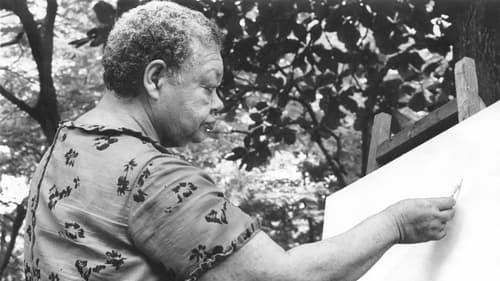
Narrator (voice)
In hopes of unraveling the causes and cure for various forms of insanity, a psychiatrist in Brazil created the Museum of Images from the Unconscious in 1952. It gathered paintings and drawings made by mental patients from all over Brazil. Many of the works in the museum are paired with the case-histories of the patients who created them in this fascinating film.

Narrator
Eduardo Coutinho was filming a movie with the same name in the Northeast of Brazil, in 1964, when there came the military coup. He had to interrupt the project, and came back to it in 1981, looking for the same places and people, showing what had ocurred since then, and trying to gather a family whose patriarch, a political leader fighting for rights of country people, had been murdered.

Self
A documentary on Brazilian poet and composer Vinicius de Moraes, made by his daughter a few months before his death.

Narrator

Self
An experimental film on Brazilian avant-garde artist Helio Oiticica and his works, especially the Parangolés.

Narrator
O Aleijadinho, a study of the work of Antonio Francisco Lisboa, the architect whose cathedral de Andrade had assisted in the restoration of more than 20 years earlier. de Andrade dedicated the film to his father, who had sent him on the expedition.

Narrator (voice)
Between 1974 and 1976, while researching for his filme "S. Bernardo", Leon Hirszman shot three documentary shorts produced by the Brazilian Ministry of Education on the chores of the men who worked in the sugar cane fields in the town of Feira de Santana, in the cocoa fields of Itabuna, and in the efforts of building households in Chã Preta.

Narrator (voice)
Between 1974 and 1976, while researching for his filme "S. Bernardo", Leon Hirszman shot three documentary shorts produced by the Brazilian Ministry of Education on the chores of the men who worked in the sugar cane fields in the town of Feira de Santana, in the cocoa fields of Itabuna, and in the efforts of building households in Chã Preta.

Narrator (voice)

This film shows people with constant psychological and social conflicts: the violence among outlaws, conflicts between man and woman, police and society.
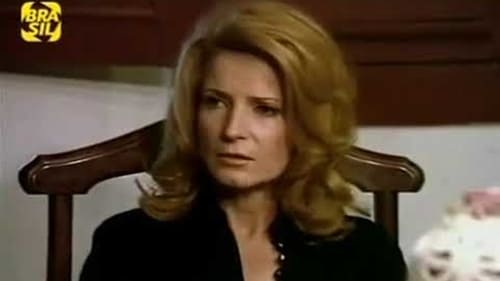
Writer
Old couple are being evicted and turn to their five children for help. Since no one can accommodate the two of them, the children decide to separate the couple.
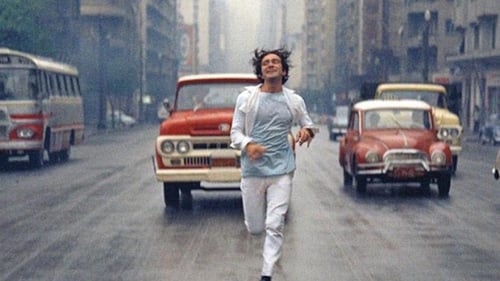
Davi Martins
An allegory about Brazil's history and the struggle for power since the 1930 Revolution until the advent of the TV.

Narrador
Short documentary about the ideology of publicity and mass medias.

Narrador
"Life and work of the Maranhense poet Sousândrade (1833-1902), illustrated with engravings on Brazilian history, from the discovery to the proclamation of the Republic."

Chefe da redação
During the Brazilian military government, journalist Estêvão is sent from Rio de Janeiro to Brasilia to cover the important statement of a minister, but takes the opportunity to deliver incriminating documents to another one.

Directed by Sérgio Bernardes Filho, "Desesperato" tells the story of a writer (Raul Cortez) who leaves his home to carry out literary research in the country's most obscure settings. Unhappy with the current national situation, the historian joins a guerrilla force with serious consequences.

Narrator (voice)
In 1967, de Andrade was invited by the Italian company Olivetti to produce a documentary on the new Brazilian capital city of Brasília. Constructed during the latter half of the 1950s and founded in 1960, the city was part of an effort to populate Brazil’s vast interior region and was to be the embodiment of democratic urban planning, free from the class divisions and inequalities that characterize so many metropolises. Unsurprisingly, Brasília, Contradições de uma Cidade Nova (Brasília, Contradictions of a New City, 1968) revealed Brasília to be utopic only for the wealthy, replicating the same social problems present in every Brazilian city. (Senses of Cinema)

Narrator (voice)
Statistics, interviews and historical information on illiteracy and inequality in land distribution in Brazil's countryside.




























